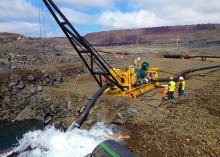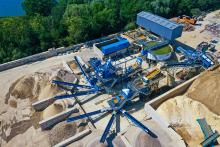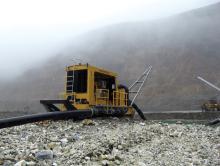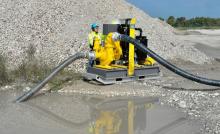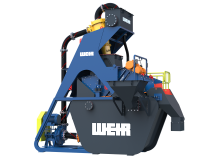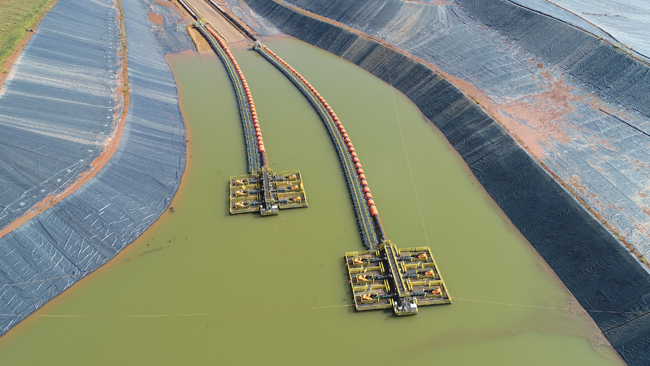
Steven Essel, head of product management at Weir Minerals Europe, explains how effective dewatering solutions ensure safe quarrying and mining conditions and a good return on investment
Open-pit and underground mining below the water table is challenging and requires dewatering and groundwater control. In the past mining projects have suffered major setbacks due to slope failures or, in extreme cases, been abandoned due to flooding or poorly managed groundwater and dewatering systems.
Effective mine and quarry dewatering cuts downtime due to flooding, improves safety in open pits, reduces blasting costs, and lowers haulage costs due to transportation of dry material.
Mine and quarry dewatering is a demanding process, with significant solids and slurries. The pump size and wet end material selection is therefore extremely important as it contributes to the overall reduction of the project costs by providing low cost of ownership.
Higher flow rates can be achieved by using multiple units in parallel. For deeper open pits, higher discharge heads are achieved by arranging pumps in series, with booster pumps located part way up the pit slopes.
As well as the varied challenges it poses, mining and quarrying below groundwater can result in increased costs and reduced efficiency. Weir Minerals has extensive experience in supplying pumps for dewatering solutions, our engineers provide technical support during groundwater investigation and can tailor a solution including installation and maintenance, to meet the unique dewatering requirements.
Tackling challenges by dewatering pumps
Dewatering pumps typically run for years with minimal maintenance. However, as with any mechanical device, problems do arise from time to time. Most problems are due to suction issues, exceptions include closing a discharge valve on a pump causing the remaining fluid to heat excessively and damage components such as the housing, bushings and seals.
When selecting dewatering pumps, the application requirements must first be considered, particularly in applications with a presence of suspended solids and slurries. Correct sizing, material selection and observing the pump fundamentals helps us meet the specified performance requirements.
There are fundamental rules to ensure low maintenance and cost of operation which include; selection of the correct wet end materials, providing sufficient net positive suction head (NPSH), reducing friction losses, ensuring that no elbows are installed on the suction inlet, eliminating air from entering the suction line and ensuring piping alignment.
Pumps are constantly evolving to enhance performance and reduce the total cost of ownership. Original Equipment Manufacturers (OEMs) are implementing measures to monitor performance and provide real-time predictive maintenance.
This approach offers cost savings over routine or time-based preventive maintenance, because tasks are performed only when required. The main advantage of predictive maintenance is to allow convenient scheduling of corrective maintenance, above all to prevent unexpected equipment failures. Therefore, the key is the right information at the right time.
Weir Minerals offers a full range of dewatering solutions and products from vertical pumps to floating pontoons and barges from long-established brands such as Multiflo, Warman and GEHO.

